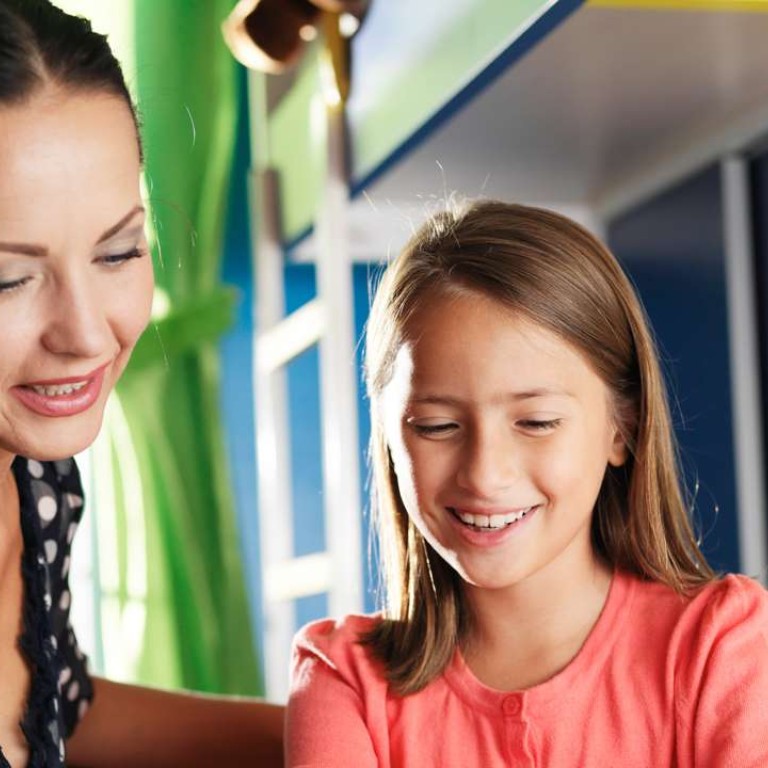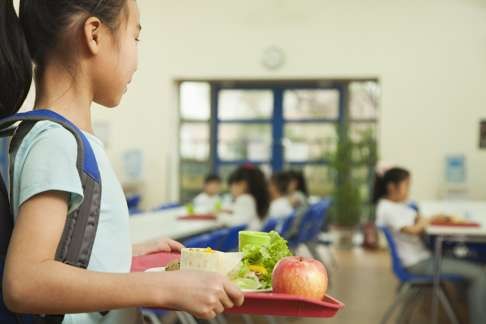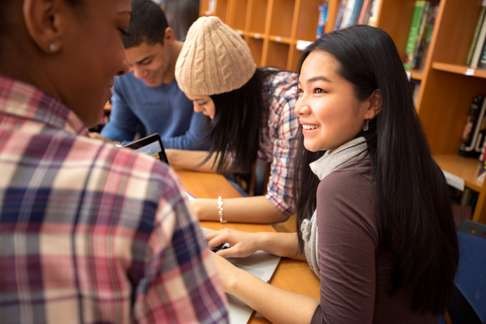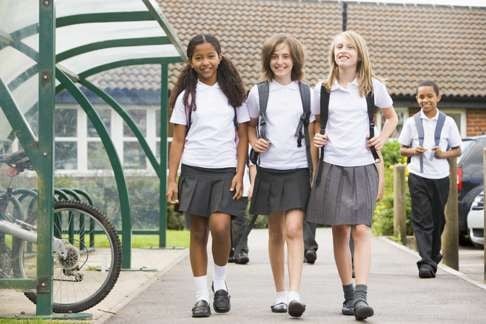
How parents can help children prepare for the transition to secondary school
The move up from primary school is a big one, so get children used to assuming more responsibility, lend a hand to get them organised, and don’t hesitate to talk to teachers if they struggle initially
My daughter has just finished Year Six in Hong Kong and is stressed about moving up to high school. She is very shy and not at all confident. Her best friend is going to a different school and she’s very upset about this. How can I help her feel better and prepare for high school?
These days parents can feel confident that the links between primary and secondary schools are stronger than they used to be. Year Six pupils often visit their new school several times throughout the year. I recently told my daughter that I hadn’t even stepped over the threshold of my secondary school until the first day of the new term, and I had no idea what to expect – yet I survived.
She, however, had two transition days to meet her new teachers, experience the structure of the lessons and find her way around. She also had a talk from current Year Seven students about their own experiences of moving up and how they dealt with any difficulties they encountered.
Why some Hong Kong teachers like parents’ help in classroom but others don’t
There is now more ongoing liaison between primary and secondary schools, giving teachers the chance to share detailed information about students, who can then receive extra support if necessary, whether it be socially, emotionally or academically.
Nevertheless, the transition from primary to secondary school is still a big change for students. They go from being a big fish in a small pond to the opposite, lose the security of having one main teacher, and have to find their way around a much larger school to attend different lessons.
To take her mind off these upcoming changes, encourage your daughter to do some fun things in the summer holiday – it’s a precious time to follow her own interests and play with friends.
Substitute teachers: how to help your child adjust
Although the situation with her best friend is unfortunate and will initially take your daughter out of her comfort zone, secondary school is a great opportunity for her to meet lots of new friends from different schools, while remaining friends with primary school peers if she chooses. It may actually work to her advantage in the long run, as she will have to socialise with others rather than stick with what she knows.
The next few years are crucial for her socially. She may well forge friendships for life. However, at this stage let her know you will help her make a special effort to keep in touch with her best friend when they go to different schools.

Organisational skills are one of the greatest challenges at secondary school. Your daughter will have a more complicated timetable and be getting different homework from a variety of subject teachers, which will need to be handed in on different days of the week. Over the summer holiday, help her to develop more responsibility and independence. Build the expectation that she will help with chores at home and keep her own room tidy. Give her jobs that make her feel grown up, like going to the local shops on her own or with a friend – try to let go a little yourself, this is always the difficult part for parents.
Mindfulness can help students deal with life’s daily pressures
When she does start school, remind her of the importance of making a good first impression in the place she may in all probability be attending for the next seven years. Give her a little support with organisation if necessary, as this is crucial, and it will be frustrating for both her and her teachers if she forgets to hand in homework or take in items she needs.
A daily checklist for homework is very useful, as is an accessible area for storing homework books and textbooks that she could organise into various subjects. Make sure she has a quiet place for completing homework away from younger siblings, television or other distractions.

Most secondary schools have good pastoral systems to support children who are struggling. If after a few weeks you feel things are not going well, your daughter’s personal tutor (or homeroom tutor), who she will have contact with most days, would usually be the first port of call. Don’t feel embarrassed about getting in touch and making the appropriate teachers aware of the situation.
My daughter is bullied in primary school – is her lack of a smartphone to blame?
Some secondary schools are starting to use a more inquiry-based curriculum, which follows more closely the type of learning used in a growing number of primary schools. Depending on the school’s curriculum approach, things may not be as different as your daughter is expecting.

Over the next few years, as your daughter is growing into a young woman, she will need your support, even if she doesn’t voice this explicitly. A stable and happy family life helps children to feel confident as they mature into young adults, and gives a refuge from anxieties about school or friendships. Make sure she knows that you are there as a sounding board for anything, and try to remain open and connected to her.
I have been amazed to see new Year Seven pupils after only a few months thriving and looking totally at home in their new environment. You may find that your daughter is surprisingly resilient. She may amaze you as well as herself.
Julie McGuire is a former Hong Kong primary school teacher
